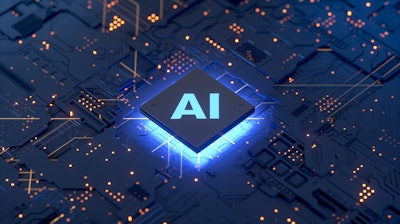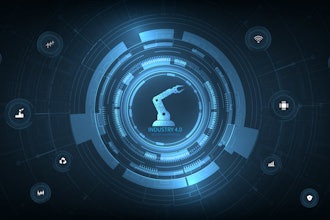
Artificial intelligence (AI) will create $2.9 trillion of business value next year for techy-savvy companies. Distributors can win big in the AI boom, but they will need to act quickly and intentionally to bring these gains into fruition. In this article, I’ll explain what distributors will need to know to cash in on AI, including how the technology works, why it enhances sales, and what distributors should do next.
What is AI?
The most basic definition of AI is any form of intelligence demonstrated by machines. In that sense, AI has been around since the 1950s. However, the technology has recently become a multi-trillion dollar industry due to increases in computer processing power and data storage, as well as breakthrough programming techniques.
While AI is incapable of general, human-like intelligence, it is very good at automating specific tasks. You, and your business, have likely been using AI tools (like email spam filters and GPS navigation) to optimize business for years.
The next generation of AI tools work no differently. They still gather data, analyze the information, and perform specific tasks. These tasks are just getting more complex. Now, instead of flagging spam or calculating quick shipping routes, AI is actually being used to predict customer behavior.
Is your company an industrial distributor? Take ID's 2020 Survey of Distributor Operations and be entered to win one of five $10 AmEx gift cards. Information and survey link here.
AI Sales Personalization
In recent years, B2C businesses have realized the potential of AI sales personalization. Sales leaders have used AI to predict customer behavior (i.e. what the data suggests that each customer is most likely to buy and when) to great effect.
Amazon’s AI recommendations (which you’ll recognize as “products you might like,” “customers also bought,” “similar items”) account for 35 percent of its online sales. It’s certainly not surprising that customers spend more when companies figure out exactly what they want and make relevant pitches. What is surprising is how many B2C companies have been able to use AI to automate this process.
Many of 2010s fastest-growing companies relied on AI to personalize their customers' experiences. Netflix used AI to recommend shows for you, Spotify used AI to pitch you on the music you would like, and Social Media companies used AI to show you posts that you were most likely to engage with.
Applying AI to Distribution
Distributors sometimes fear that AI will detract from their signature personal service. Unlike the online-only companies listed above, many distributors rely on personal connection. AI can never replace this element of distribution, but it can certainly improve it.
Distributors sometimes have thousands of customers and millions of SKUs. That’s a lot of information to deal with. What’s more, they often deal with those thousands of customers across multiple, uncoordinated channels. Even if a company’s top salesperson knows some customers very well, their website and call centers will know nothing about those same customers.
Equipping your company with AI will bring all of your customer information into one coordinated system, effectively breaking down structural data silos. With AI, distributors can enjoy a complete understanding of every customer, and coordinated multi-channel selling strategies (i.e. which customers to contact, how to contact them, when to contact them, and what to sell).
For example, the AI-equipped sales rep will be able to pitch customers on products similar to what they viewed online. Meanwhile, the AI-powered website will be able to promote items like the ones they talked about with reps. When your data is brought into one place and properly analyzed, you enhance your ability to sell to customers at every place.
When to Invest
The good news is that AI is great at predicting customer behavior because it can process tons of data. The bad news is that AI needs tons of data to accurately predict behavior. Thus, distributors with lots of data have an easier time cashing in on the benefits of AI.
When distributors use AI to sell more, they simultaneously generate more revenue and more data. They can then feed that new data back to their AI, and use it to generate even better-personalized sales strategies. Those personalized strategies generate more sales (and thus more data), and on it goes. Thus, the sooner distributors can start generating a positive AI feedback loop, the better.
A recent McKinsey simulation predicted that early AI adopters will increase cash flow by 122 percent over the next decade. Slow adopters were predicted to see modest revenue gains, while non-adopters were forecasted to lose business.
Distributors are poised to win with AI because they have tons of multiple sales channels, customer data, and a willingness to innovate. However, if distributors don’t start putting their resources to use soon, this advantage will quickly evaporate.
 Benj Cohen
Benj Cohen























